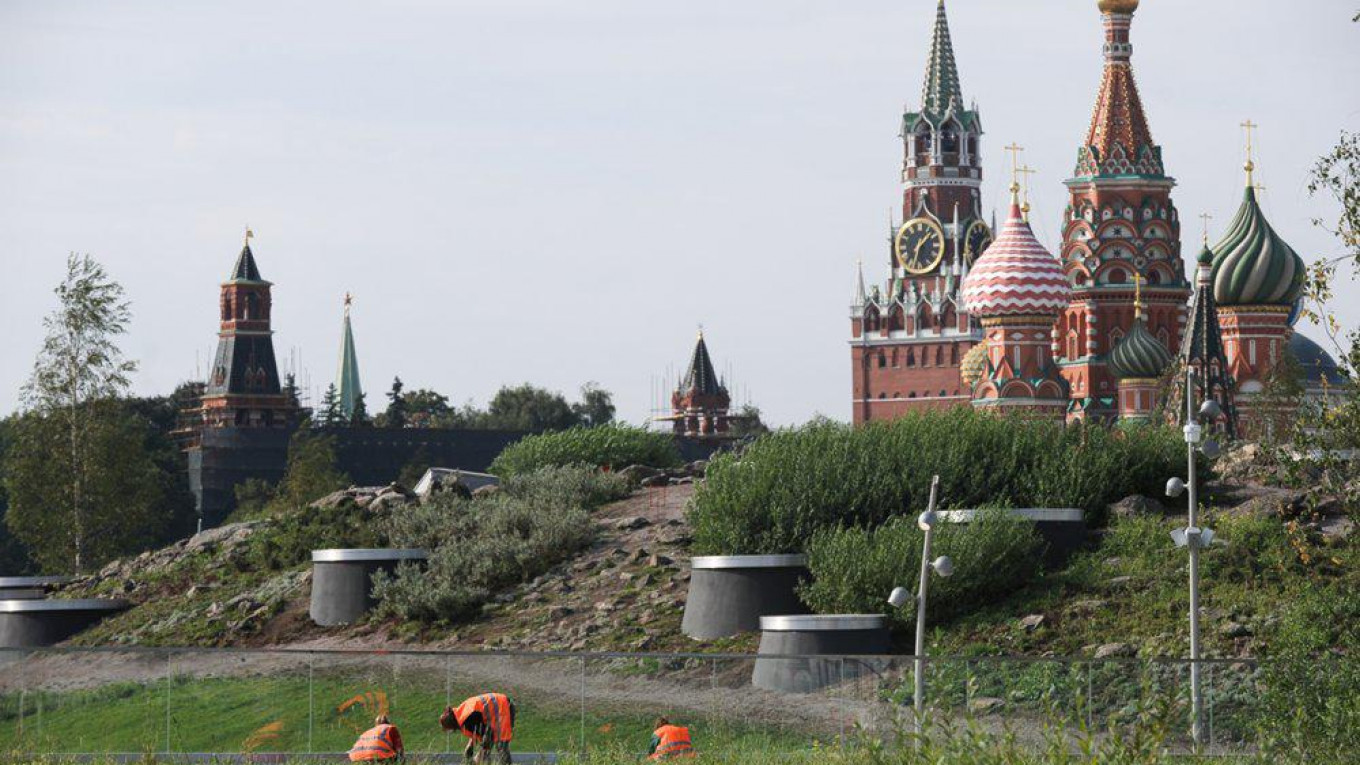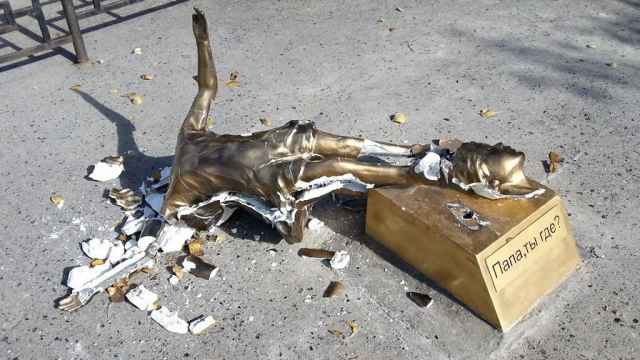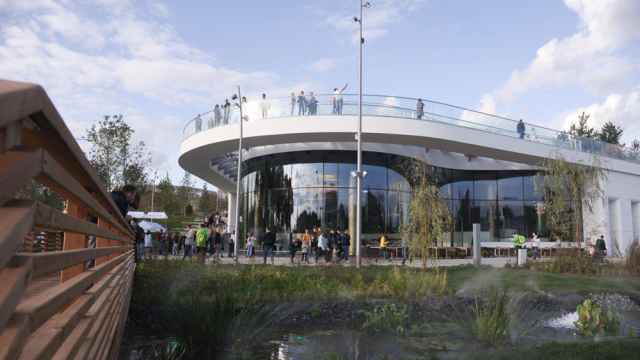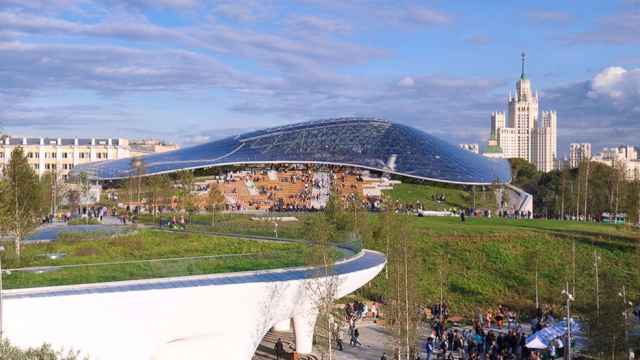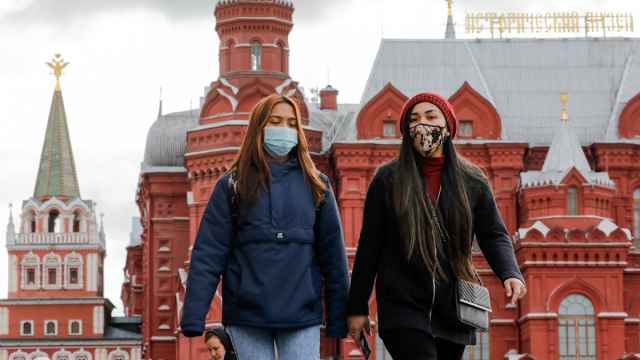Muscovites’ verdict on Zaryadye Park, the authorities’ large gift to mark the capital’s 870th anniversary, was quick.
Within a week of the opening of the park, built just five minutes from the Kremlin at a cost of 14 billion rubles ($241.4 million), it needed repairs.
In the best tradition of Soviet-era petty hooliganism, visitors damaged several lamp posts, broke panes in the glass dome, trampled the lawns, and dug out bits of moss and lichen from the greenery to take home.
After complaints from park workers, signs went up prohibiting guests from walking on the grass and police and even the National Guard began patrolling the paths.
This shows how society adapts to changes imposed from above: if leaders foist a futuristic urban environment on them too quickly, locals will bring with them some of their past unsympathetic habits.
Philosopher Ivan Mikirtumov suggests that such acts of petty vandalism were typical in the 1970s. Such deviant behavior by youth from low and middle-income families was a sign of alienation from the state and its aspirations.
Today’s situation might provoke a certain segment of society to act out in a similar way. On the other hand, Mikirtumov quips, with the authorities spreading such a lavish “banquet table” in the run-up to presidential elections, Muscovites might simply be snatching whatever “hors d’oeuvres” they can pocket while the getting is good.
In his encyclopedia of urban design, the city’s chief architect Grigory Revzin explains that the ritual of “gifting” the people with a holiday, new building, public space, or other meaningless expenditure is, for the authorities, a symbol of governance.
Revzin writes that these “gifts” are meant to demonstrate the great generosity of leaders and elicit from citizens a sense of gratitude and obligation towards the authorities. But when people want improved social services — not parks and glass domes — there can be a backlash, with people symbolically dismantling the park to indicate their displeasure with the meaningless and wasteful gesture.
Only an educated minority of Muscovites have responded actively in this way to another such “gift,” the “My Street” urban renewal project, or to the reconstruction of the capital’s five-story apartment buildings.
Possibly, the elderly who dug up lichens in Zaryadye Park view them, by dint of habit, as a literal gift to them from city leaders.
In any case, with Zaryadye Park, the Western idea of creating a modern architectural project for its citizen has run up against a lack of Western values among the population — for example, in their lack of respect for public property and unwillingness to embrace something new.
The way Muscovites treated the park does not necessarily mean they do not like it, according to associate professor Ivan Mitin of the Urban Studies department at the Higher School of Economics.
More likely, he says, it is simply a sign that they are unprepared for something so new to appear in the urban landscape.
Of course, the more a new development is intrinsic to the people and place where it appears, the sooner and more widely it will find acceptance.
The problem, Mitin explains, is that the Russian authorities generally make no effort toward phasing anything in, and Zaryadye Park is a perfect example of this.
The views and opinions expressed in opinion pieces do not necessarily reflect the position of The Moscow Times.
A Message from The Moscow Times:
Dear readers,
We are facing unprecedented challenges. Russia's Prosecutor General's Office has designated The Moscow Times as an "undesirable" organization, criminalizing our work and putting our staff at risk of prosecution. This follows our earlier unjust labeling as a "foreign agent."
These actions are direct attempts to silence independent journalism in Russia. The authorities claim our work "discredits the decisions of the Russian leadership." We see things differently: we strive to provide accurate, unbiased reporting on Russia.
We, the journalists of The Moscow Times, refuse to be silenced. But to continue our work, we need your help.
Your support, no matter how small, makes a world of difference. If you can, please support us monthly starting from just $2. It's quick to set up, and every contribution makes a significant impact.
By supporting The Moscow Times, you're defending open, independent journalism in the face of repression. Thank you for standing with us.
Remind me later.



